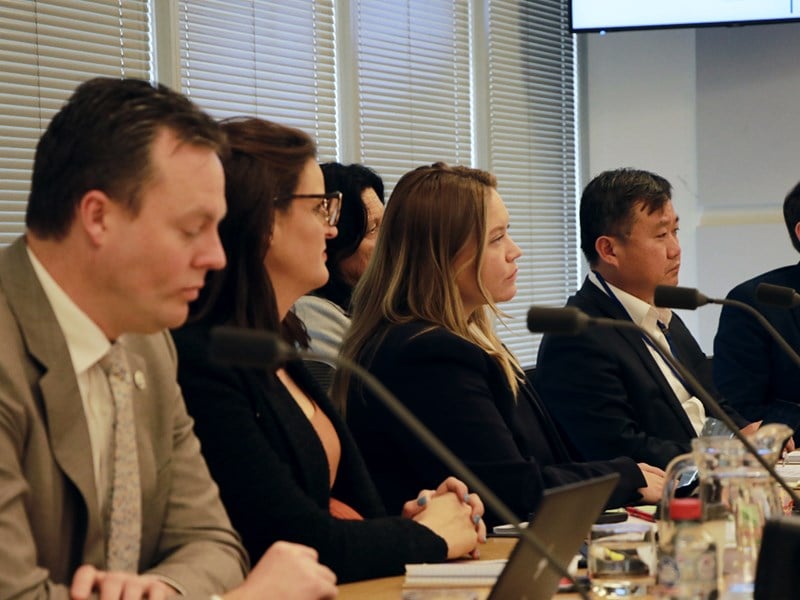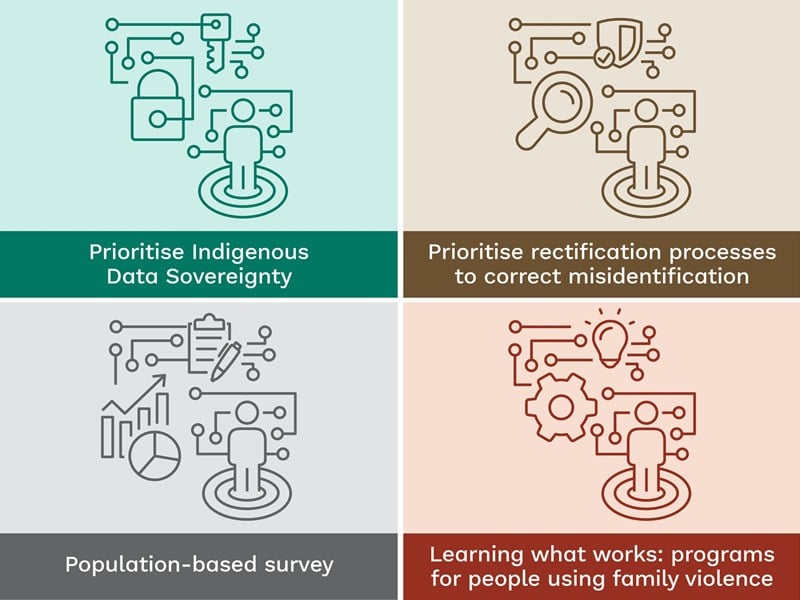Building the evidence base on family violence
3 April 2025 Read the report

A parliamentary committee has called for improved data collection on people who use family violence after finding limitations and challenges with the coordination, oversight and accountability in existing data sets.
In its latest report, the Legislative Assembly Legal and Social Issues Committee has found that achieving a fuller understanding of people using family violence will help make significant inroads to better responding to family violence, while continuing to prioritise the safety and experiences of victim survivors.
Committee Chair Ella George said collecting family violence data, including about those who use family violence, was complex.
'Data on people using family violence is held in multiple places, by multiple organisations, and is often not comprehensive enough to provide a complete picture,' she said.
'Building data capability is important because it strengthens the evidence base on the drivers of family violence, pathways to perpetration and what leads people using family violence to take responsibility for changing their behaviours.’
The Committee’s report includes 61 recommendations and 71 findings.
The first recommendation called on the Victorian Government to undertake a data mapping exercise on what data is collected, where it’s collected, who it’s held by and how it’s used. This would identify the scope and nature of existing gaps, informing priorities for future data collection.
The report highlighted key areas of opportunity to increase understanding of people using family violence. This included prioritising Indigenous Data Sovereignty.
'The best outcomes for First Nations peoples are achieved when they have a say in the things that affect them and their everyday lives, and the supports they need,' Dr Jill Gallagher, Chief Executive Officer of the Victorian Aboriginal Community Controlled Health Organisation, told the inquiry.
'Indigenous Data Sovereignty will give First Nations communities control over how family violence data is collected, captured, interpreted and utilised.'
Reforming misidentification was another key area of opportunity highlighted by the Committee. Ms George said collecting data on people who use family violence was not straightforward, and caution must be taken to ensure accuracy and to protect victim survivors.
'Misidentification of the predominant aggressor continues to distort the data collected, harming victim survivors and keeping people who use family violence out of view of systems,' she said.
In Victoria, 10–12% of Victoria Police Family Violence Reports misidentify a victim survivor as the person using family violence.
'We recommend the establishment of a clear, system-wide process to correct misidentification, ensuring that data collection processes do not reinforce harmful stereotypes or enable system abuse,' Ms George said.
A pilot population-based survey of people who use violence is taking place in NSW and the Committee recommended the same be done for Victoria.
'Stakeholders identified a population-based survey of people who use family violence as an opportunity to provide new insights and a more representative sample,' Ms George said.
The Committee also found that learning from the programs already being delivered to people using family violence could improve data collection, build knowledge and improve the quality and impact of services.

Deputy Chair Annabelle Cleeland said many government departments, agencies and services engage with people experiencing or using family violence.
‘In this inquiry we focused on how the Victorian Government and relevant agencies can achieve a more holistic understanding of people using family violence, primarily when it comes to the collection and usage of data,’ she said.
‘A significant amount of data collected on people who use family violence supports risk assessment and management as well as policy development, service planning, research and evaluation activities.’
Ms George said minimising, addressing and preventing family violence was a collective responsibility.
‘This report highlights the need for a holistic and systemic approach that coordinates and links existing datasets, enhances cross-sector collaboration, and ensures consistency in data standards,’ she said.
'This report is a call to action for government, researchers, service providers, and policymakers to continue to work collaboratively in transforming the way we collect and use data on people who use family violence.
'We must move beyond fragmented, inconsistent, and limited datasets to a coordinated, robust, and evidence-informed approach that enhances prevention, early intervention, and accountability.'
The government has six months to respond to the report.